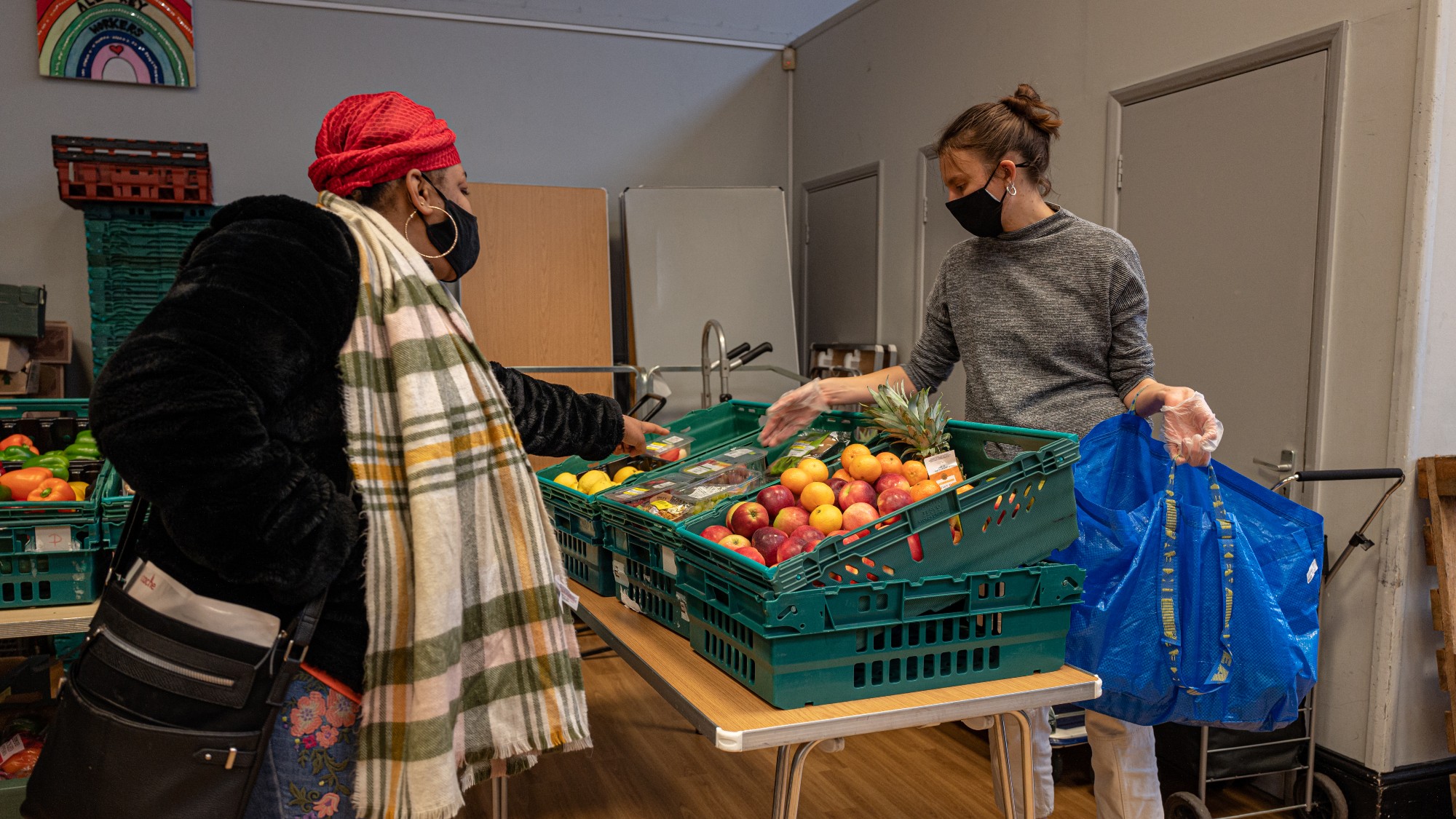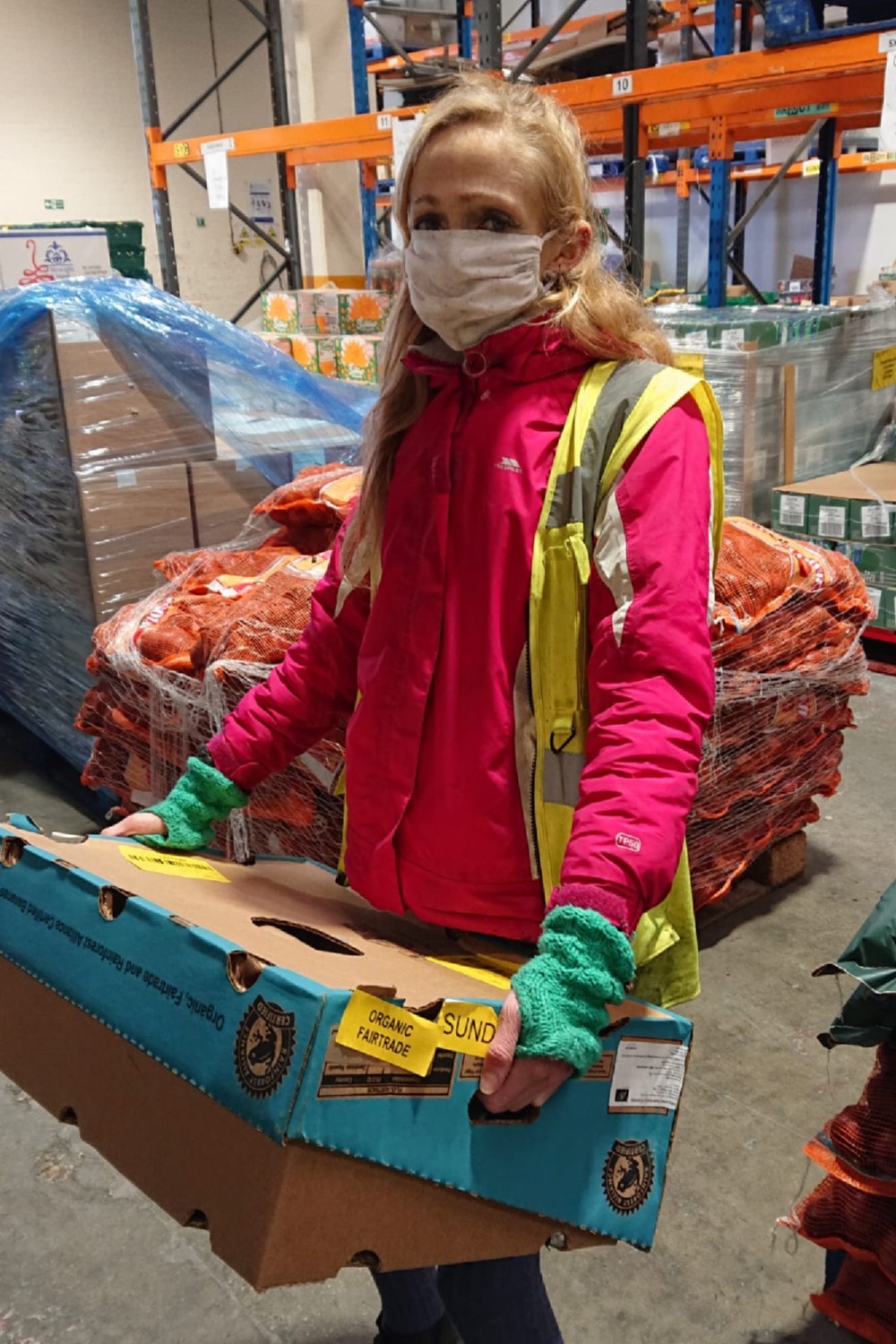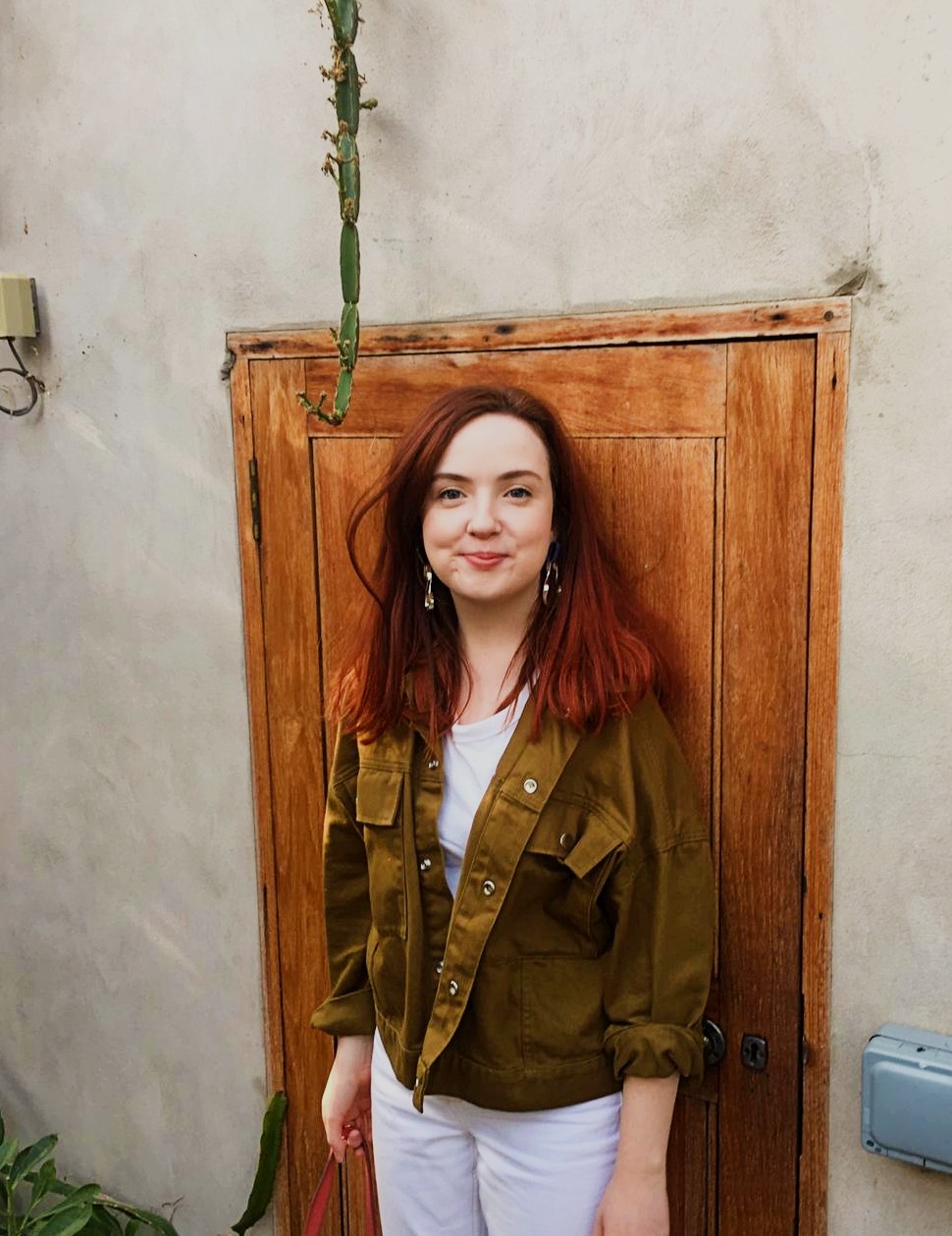Inside FareShare at Christmas: ‘There are days when the food warehouse gets very empty'
FareShare, the UK’s largest charity fighting hunger and food waste, saw applications from the frontline charities it supplies food to triple during the first lockdown in April. As England locks down again, 90% of these charities say that demand will increase. Marie Claire meets a young FareShare volunteer witnessing the nation’s food crisis firsthand.


Celebrity news, beauty, fashion advice, and fascinating features, delivered straight to your inbox!
You are now subscribed
Your newsletter sign-up was successful
FareShare, the UK’s largest charity fighting hunger and food waste, saw applications from the frontline charities it supplies food to triple during the first lockdown in April. As England locks down again, 90% of these charities say that demand will increase. Marie Claire meets a young FareShare volunteer witnessing the nation’s food crisis firsthand.
When Sarah, a 31-year-old creative arts teacher from London, found herself at a loose end following the closure of schools during the first lockdown, she started volunteering at Fareshare’s London warehouse.
‘Everyone felt very helpless, I think, in April. I'm not a qualified nurse so I felt useless in terms of hospitals and caring for people in that way,’ she says.
‘They had an overwhelming number of volunteers coming in and signing up at the beginning of lockdown, and it actually took me a couple of weeks to get on the rota. But then very quickly, people dropped out as lockdown lifted.’
At the peak of the crisis, FareShare – who provide food to 11,000 charities, community centres, homeless shelters and food banks across the UK – estimate that they were distributing enough food for over 3 million meals a week. Two thirds of those who access the charity’s food are children and families.

‘There are days when the food warehouse gets very empty,’ admits Sarah. ‘Right now it looks a lot better, but throughout September it was getting barer and barer.’
Despite the unwavering support of Marie Claire Future Shapers award-winner Marcus Rashford – and a recent visit from the Duke and Duchess of Cambridge – with the UK entering yet another lockdown and redundancies at a record high, pressure on the charity is only set to spike again.
Celebrity news, beauty, fashion advice, and fascinating features, delivered straight to your inbox!
'1.3 billion meals are thrown away each year'
FareShare’s surplus food comes from distributors, manufacturers and farmers. None of it has gotten as far as a supermarket shelf.
What a warehouse will get in a day hinges on what these organisations don’t want – leaving volunteers like Sarah regularly debating such dilemmas as, ‘Where do you even keep 26 pallets of beetroot?’ Or, more saliently, ‘How do we get this food distributed to the people who can use it before it goes off?’
While an estimated 8 million people in the UK go hungry each year (that figure is all but guaranteed to have skyrocketed this year) the equivalent of at least 1.3 billion meals worth of food is thrown away before it even reaches homes or schools.
‘When you're just one little warehouse doing this, it makes you realise how screwed up the whole industry is,’ says Sarah.
A day in the life of a FareShare volunteer
Naturally, there is no typical day for FareShare’s volunteers – just as there is no prototypical volunteer. ‘It’s everyone – the youngest being around 16, right up to people who are retired,’ says Sarah.
Her day begins at 8am, when she lines up the pallets of food, which have been picked the day before, so they’re ready to be lifted into the delivery vans via forklift. Once that day’s vans have left, she starts on sorting deliveries and picking pallets to go out the next day.
‘In the summer, it was really difficult to try and find space in the chillers for everything that needed to be kept cold. Now, the warehouse is probably as cold as the chiller.'
Though they differ, Sarah estimates that each food pallet weighs around 750kg. ‘Building a pallet is like a game of Tetris – you can’t put your crisps on the bottom and your baked beans on the top.’
Office staff make up shopping lists for the pickers on the warehouse floor based on what each charity needs, and what they have available. ‘A charity that is a food bank giving to mothers with young babies are not going to find a 10kg box of butternut squash useful,’ she points out.
Back in May, the government pledged £16 million in funding for frontline food charities in England. When it began to dwindle, ‘The pallets got smaller and smaller,’ says Sarah.
‘Sometimes you’d read the weekly newsletter and it would say “this week, we’ve received 60 tonnes of food, and we’ve distributed 90 tonnes of food” and the figures were not adding up.’
It must at times be as emotionally draining as it is physically?
‘I get a lot out of getting to connect with so many different people,’ she says simply. ‘As well as feeling as though you’ve done something positive, everyone has had a different COVID experience. A lot of people are temporarily out of work, or work part-time, or are retired, and it really helped me to not freakout so much about lockdown. You could always talk to someone and hear a totally different take on life and work. I found that really helpful and important.’
What you can do to help FareShare this Christmas
This Christmas, FareShare are launching the Give a Little Love appeal to help individuals and families in crisis.
Says Christie Garrett, the charity’s senior press officer: “As millions of people across the UK face a difficult and uncertain Christmas, we’ve partnered with John Lewis and Waitrose to aim to raise £4m for FareShare and Home-Start UK – and help us continue to get food onto the plates of people who need it most. All customer donations to Give a Little Love appeal, up to the value of £2m, will be match funded by a donation from the John Lewis Partnership.”
You can donate to the appeal here.
Donations help fund the running of the charity’s delivery vans, PPE to protect volunteers, and all-importantly help FareShare get food to hundreds more frontline organisations supporting vulnerable people – an indispensable lifeline needed by thousands of people, now more than ever.
Kate McCusker is a freelance writer at Marie Claire UK, having joined the team in 2019. She studied fashion journalism at Central Saint Martins, and her byline has also appeared in Dezeen, British Vogue, The Times and woman&home. In no particular order, her big loves are: design, good fiction, bad reality shows and the risible interiors of celebrity houses.
